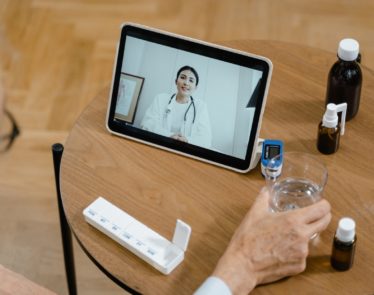
The health crisis has resulted in over one million deaths to date, but another emerging consequence of the global pandemic is affecting a much larger demographic. Aside from the growing death toll, the COVID-19 pandemic is sending mental illness cases skyrocketing, including an increase in post-traumatic stress disorder (PTSD). An estimated 70% of US adults experience at least one trauma in their lives that could lead to PTSD, yet effective treatments are few and far between. At present there are only five FDA-approved prescription drugs for the treatment of PTSD, including Pfizer’s (NYSE:PFE) Zoloft. There are also off label treatments like AstraZeneca’s (NASDAQ:AZN) Quetiapine. The problem is that these medications can be highly addictive and often come with a long list of side effects, fueling companies like Tonix Pharmaceuticals (NASDAQ:TNXP), Mind Medicine (MindMed) Inc. (NEO: MMED) (OTCQB:MMEDF), and Mydecine Innovations Group Inc. (CSE:MYCO) (OTC:MYCOF) to develop effective alternatives.
Mydecine Innovations Group is an emerging biopharma and life sciences company focused on the research, development, and acceptance of alternative nature-sourced medicine to help combat the growing mental health crisis.
Pandemic Shines Light on Demand for Effective PTSD Treatments
The mental health of first responders became a major focus following the aftermath of the 9/11 terrorist attacks, shedding light on the risks of being exposed to emergency settings. Frontline workers are being tested to their limits once again due to COVID-19 and are at a high risk of developing PTSD.
While many biotech companies have switched gears to focus on potential vaccines and treatments for COVID-19, Mydecine Innovations Group is looking to help tackle the ongoing mental health crisis through its clinical trials and its own digital mental health platform. In mid-November, Mydecine announced the international expansion of its Phase 2A clinical trials of psilocybin-assisted psychotherapy to treat chronic PTSD in veterans and emergency medical services (EMS) personnel.
The research is taking place at Leiden University Medical Centre in the Netherlands, the University of Alberta, and the University of Western Ontario, with plans to add additional
clinical sites in the USA, Europe, and Australia. The clinical trials will explore how the brain responds to psychedelics to develop a better understanding of the biological underpinnings of the experience. Following their completion, Mydecine Innovations Group will use the data from their studies to build on its knowledge to move forward with an application for FDA breakthrough designation.
Mydecine Innovations Group also recently launched the Mindleap app, the world’s first telehealth platform for psychedelic integration. The platform, which was launched on September 30 on iOS and Android, offers a powerful set of tools for managing mental healthcare. Mindleap allows users to connect virtually with specialists and enables mood, emotion, and habit tracking, while having the ability to schedule appointments, and purchase mental health services.
Before the new year, Mydecine Innovations Group will be expanding Mindleap by adding mental health specialists with different aptitudes and a digital therapeutics marketplace that offers comprehensive mental health programs that focus on addiction, meditation, psychedelic integration, holistic wellness, and drug harm reduction.
Psychedelic medicine biotech company Mind Medicine (MindMed) Inc. (NEO: MMED) (OTCQB:MMEDF) is another company making headway in its clinical studies to evaluate potential treatments to help patients with anxiety, ADHD, cluster headaches, and substance abuse. MindMed is also in the process of establishing a digital medical division known as Albert, an integrated technical platform and comprehensive toolset aimed at delivering psychedelic-inspired medicines and experiential therapies combined with digital therapeutics.
Tonix Pharmaceuticals (NASDAQ:TNXP) is another biopharmaceutical company looking to help combat mental illness, although the company hit a speedbump in its Phase III RECOVERY study of Tonmya for PTSD earlier this year. In February, Tonix decided to stop enrollment in the study due to inadequate separation from placebo. Luckily, the company continued forward and has recently outlined a new statistical method to analyze future PTSD drug studies.
Until these alternative treatments come to market, consumers are continuing to turn to Pfizer’s (NYSE:PFE) Zoloft to combat things like depression, anxiety, and PTSD. In fact, Zoloft is one of the most commonly prescribed antidepressants in the US and in other countries, which led to a shortage of the drug during the height of the pandemic.
Another treatment for PTSD and other mental illnesses, including schizophrenia and bipolar disorder, is the powerful antipsychotic quetiapine, which was developed by AstraZeneca (NASDAQ:AZN) and is sold under the name Seroquel. The drug has become wildly popular for several off label uses, including insomnia caused by PTSD; however, the adverse effects of the drug came into the spotlight through data obtained from the FDA’s Adverse Event Reporting System in 2017.
Of course, Seroquel isn’t the only prescription antidepressant that causes adverse effects. Prescription drugs for depression, anxiety, and PTSD all come with a list of common and severe side effects, which range from nausea and dizziness to loss of consciousness and suicidal ideation.
The market is clearly in need of safe and effective alternatives for treating mental health, creating a large opportunity for companies like Mydecine Innovations Group.
For more information on Mydecine Innovations Group (CSE:MYCO) (OTC:MYCOF), please visit this link.
Featured image: DepositPhotos © imagedb_seller












